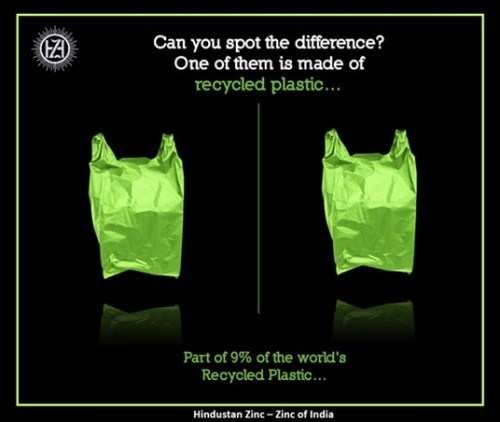Manthan – Only 9% of the world’s total plastic is recycled
“Manthan”, an initiative by Hindustan Zinc, is a series of stories to bring awareness about various concerns like air pollution, water pollution, plastic pollution, noise pollution, climate change, road safety and wildlife protection.

“Manthan”, an initiative by Hindustan Zinc, is a series of stories to bring awareness about various concerns like air pollution, water pollution, plastic pollution, noise pollution, climate change, road safety and wildlife protection.
Let us start with the question, what is Plastic Pollution? As the world’s population continues to grow, so does the amount of garbage that people produce. On-the-go lifestyles require easily disposable products, such as soda cans or bottles of water, but the accumulation of these products has led to increasing amounts of plastic pollution around the world. As plastic is composed of major toxic pollutants, it has the potential to cause great harm to the environment in the form of air, water and land pollution.
On the occasion of World Environment Day 2018, it was a proud moment for all when India was entrusted to host this day under the theme “Beat Plastic Pollution”.
It is astonishing to know that every year the world uses about one trillion plastic bags. Each year, at least 8 million tonnes of plastic ends up in the oceans, the equivalent of a full garbage truck every minute. In the last decade, the world produced more plastic than in the whole of last century. Fifty per cent of the plastic the world uses is single-use or disposable. We buy one million plastic bottles every minute. Plastic makes up 10 per cent of all of the waste we generate.
Waste Plastic Production in a year totals around 335 million metric tons. Several researches and reports state that, out of the entire plastic waste, only 9% of the world’s plastic is recycled. That counts up to 30 million tonnes. Another 12 percent is burnt. The remaining 79 percent has built up in landfills or ended up elsewhere in the environment. More than 9 billion tons of plastic have been made since the 1950s till the year 2016.
Plastic Recycling helps to reduce the energy usage, it reduces the consumption of fresh raw materials, it reduces the water pollution and the air pollution (from the land filling) by reducing the need for conventional waste disposal and it reduces the greenhouse gases emissions. And so, plastic is often recycled to make items such as clothes, carpets, containers, bottles, plastic lumbers, films, grocery bags, molding materials, and lawn and garden products. It’s used in everything from the keyboard or pen you are using, to your glasses or contact lenses, the Teflon on your frying pan, and the banknotes in your wallet. It’s in your clothes, phones, cars, mattresses and TV screens.
The rest 91% of plastic is not recycled. This is largely because, thermosetting plastics cannot be recycled by the normal method of heating because the molecular bonds that bind them together burn instead of melting. There are cutting-edge chemical processes that can be used, but they are a long way off being economically viable. Also because, not all recyclers accept all types of plastic, and in fact, most don’t. Even if a form of plastic is able to be recycled, the community may not have the means to do so, or it may not be cost-effective. Thus, it’s very important to never put a type of plastic that the hauler doesn’t accept in with the rest of the plastic getting recycled. This is a form of contamination in the same way as throwing non-recyclable waste would be.
Next time you go for shopping, don’t forget to carry a cloth bag. Or ask for recycled plastic bags. If demand drives the supply, this should bring a check in the supply of plastic bags. Secondly, next time when you throw plastic bags, don’t throw them on roads, there are dustbins. Since such plastic do carry value, let someone create value by recycling them.
To join us on Facebook Click Here and Subscribe to UdaipurTimes Broadcast channels on GoogleNews | Telegram | Signal


